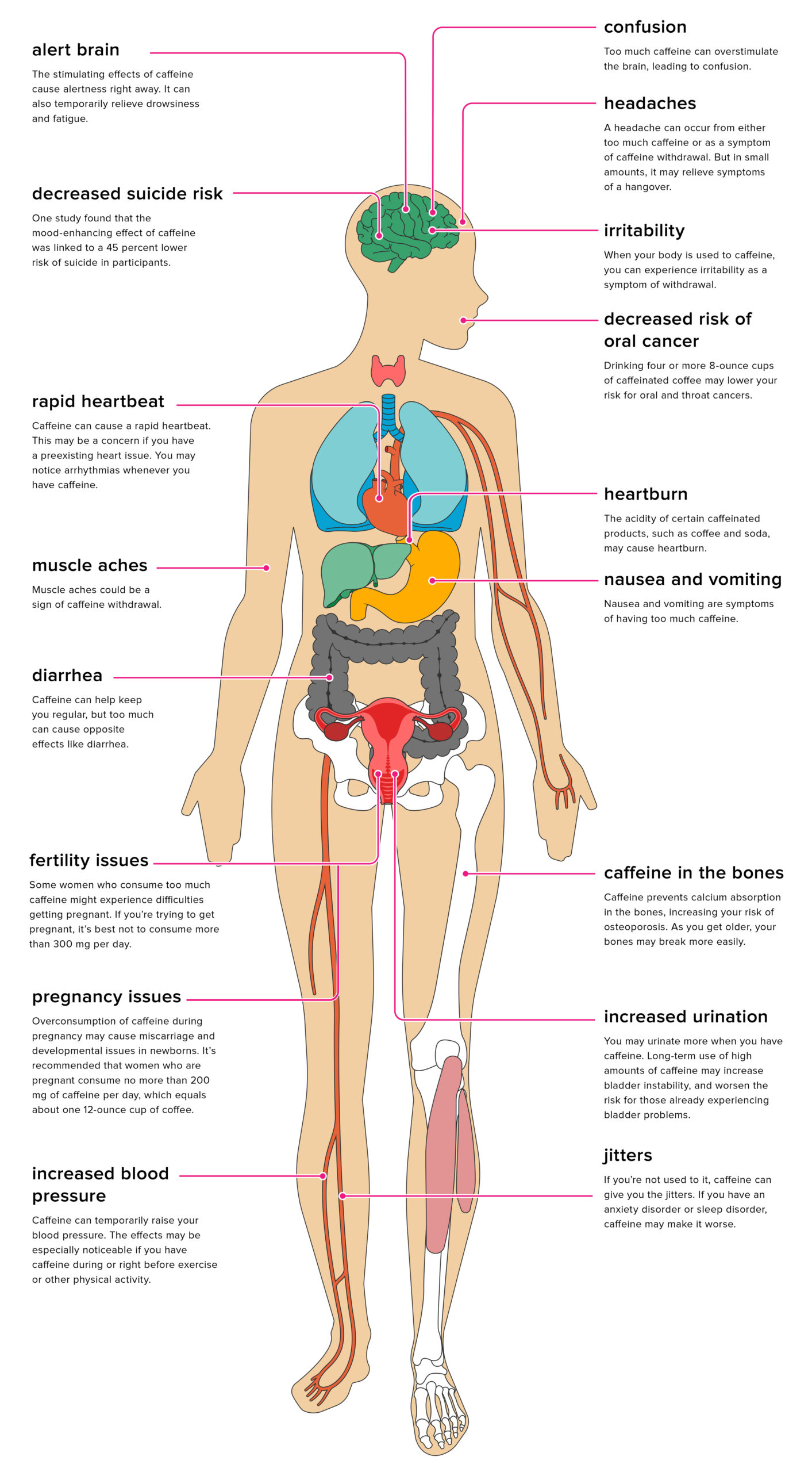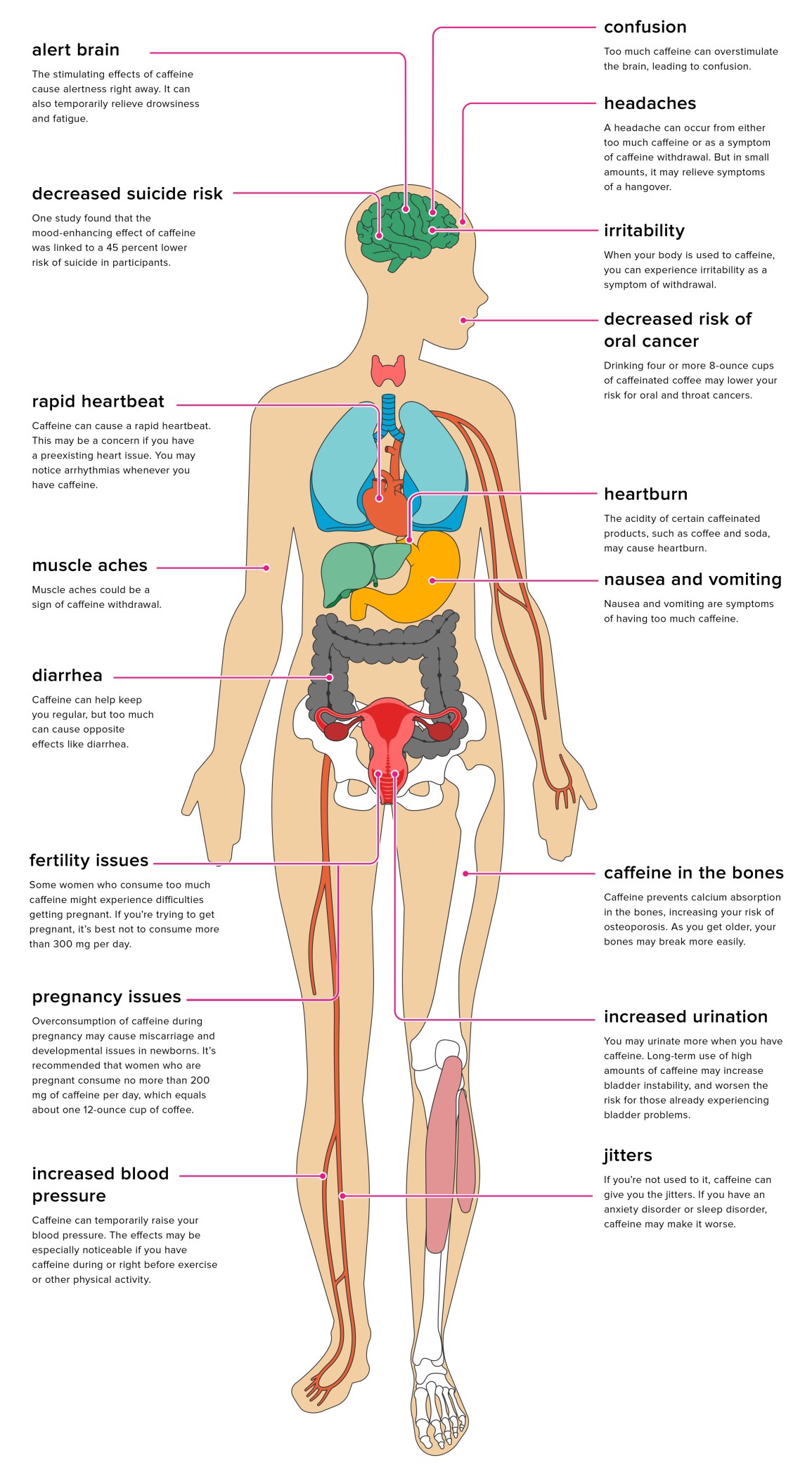Can Too Much Caffeine Cause Memory Loss?
Caffeine is a popular stimulant that many of us rely on to get through our day. However, recent studies have raised concerns about the impact of excessive caffeine consumption on our cognitive functions. In particular, the question of whether too much caffeine can cause memory loss has become an area of interest for scientists and … Can Too Much Caffeine Cause Memory Loss? Read More » The post Can Too Much Caffeine Cause Memory Loss? appeared first on Caffeine Addiction Help.

Caffeine is a popular stimulant that many of us rely on to get through our day. However, recent studies have raised concerns about the impact of excessive caffeine consumption on our cognitive functions. In particular, the question of whether too much caffeine can cause memory loss has become an area of interest for scientists and coffee lovers alike.
In this article, we will explore the relationship between caffeine and memory loss. We will examine the scientific evidence, look at the potential risks of excessive caffeine intake, and discuss some of the ways in which we can manage our caffeine consumption to protect our memory and cognitive health. So, let’s dive in and find out if our daily cup of joe is doing more harm than good.

Can Too Much Caffeine Cause Memory Loss?
If you’re like most people, you can’t start your day without a cup of coffee or tea. Caffeine is a stimulant that helps you feel more alert and focused. But have you ever wondered if too much caffeine can cause memory loss? In this article, we will explore the science behind caffeine and its effects on memory.
What is Caffeine?
Caffeine is a natural stimulant found in coffee, tea, chocolate, and many other foods and drinks. It works by blocking the action of adenosine, a neurotransmitter that makes you feel sleepy. When adenosine is blocked, your brain produces more dopamine and norepinephrine, two neurotransmitters that help you feel more alert and focused.
However, caffeine is not without its drawbacks. Too much caffeine can cause jitteriness, anxiety, and insomnia. It can also lead to dehydration, which can affect your cognitive function and memory.
How Does Caffeine Affect Memory?
The relationship between caffeine and memory is complex. On the one hand, caffeine can improve your short-term memory and attention span. Studies have shown that caffeine can enhance cognitive performance, particularly in tasks that require sustained attention and working memory.
On the other hand, excessive caffeine intake can impair your long-term memory. Research has found that high doses of caffeine can interfere with the consolidation of memories, the process by which short-term memories are converted into long-term memories.
The Benefits of Caffeine
Despite its potential drawbacks, caffeine has many benefits. In addition to improving cognitive performance, caffeine has been shown to have a protective effect against neurological diseases such as Alzheimer’s and Parkinson’s disease. It can also improve physical performance and reduce the risk of developing type 2 diabetes.
Benefits of Caffeine:
- Improves cognitive performance
- Protective effect against Alzheimer’s and Parkinson’s disease
- Improves physical performance
- Reduces the risk of developing type 2 diabetes
The Drawbacks of Caffeine
While caffeine has many benefits, it’s important to be aware of its drawbacks. Too much caffeine can cause jitteriness, anxiety, and insomnia. It can also lead to dehydration, which can affect your cognitive function and memory.
Additionally, high doses of caffeine can interfere with the consolidation of memories, the process by which short-term memories are converted into long-term memories. This can lead to impaired long-term memory and difficulty in learning new information.
Drawbacks of Caffeine:
- Jitteriness
- Anxiety
- Insomnia
- Dehydration
- Impaired long-term memory
- Difficulty in learning new information
Caffeine vs. Memory-Enhancing Supplements
If you’re looking to improve your memory, you may be considering memory-enhancing supplements such as ginkgo biloba or omega-3 fatty acids. While these supplements may have some benefits, they are not as well-studied as caffeine.
Caffeine has been shown to have a positive effect on cognitive performance, while the evidence for memory-enhancing supplements is mixed. Additionally, caffeine is readily available and inexpensive, while memory-enhancing supplements can be expensive and may have unwanted side effects.
The Bottom Line
So, can too much caffeine cause memory loss? The answer is yes, but only if you consume excessive amounts. Moderate caffeine intake can actually improve cognitive performance and may have a protective effect against neurological diseases.
If you’re concerned about the effects of caffeine on your memory, it’s best to limit your intake to no more than 400 milligrams per day, the equivalent of four cups of coffee. And as always, be sure to stay hydrated and get plenty of rest to keep your brain in top shape.
Frequently Asked Questions
Here are some commonly asked questions about caffeine and memory loss:
How does caffeine affect the brain?
Caffeine is a central nervous system stimulant that blocks the action of adenosine, a neurotransmitter that promotes sleep and suppresses arousal. By blocking adenosine, caffeine can increase alertness, attention, and cognitive performance. However, caffeine can also cause side effects such as anxiety, restlessness, rapid heartbeat, and increased blood pressure.
Moreover, caffeine can interfere with sleep, which is crucial for memory consolidation and learning. Sleep deprivation can impair memory, attention, and executive function, and chronic sleep problems can increase the risk of cognitive decline and dementia. Therefore, excessive caffeine intake can have negative effects on brain function and memory, especially if it disrupts sleep.
What is memory loss?
Memory loss is a common symptom of aging, stress, disease, injury, or medication. Memory loss can affect different aspects of memory, such as short-term memory, long-term memory, working memory, and spatial memory. Memory loss can also affect different types of memory, such as declarative memory, procedural memory, episodic memory, and semantic memory. Memory loss can manifest as forgetfulness, confusion, disorientation, or inability to recall past events, names, faces, or facts.
Memory loss can have various causes, such as Alzheimer’s disease, Parkinson’s disease, stroke, traumatic brain injury, depression, anxiety, vitamin deficiency, thyroid disorder, medication side effects, or substance abuse. Therefore, it is important to identify the underlying cause of memory loss and seek appropriate treatment or prevention strategies.
How much caffeine is safe to consume?
The safe level of caffeine consumption depends on individual sensitivity, age, weight, health status, and other factors. Generally, moderate caffeine intake of up to 400 mg per day is considered safe for most adults, which is equivalent to about four cups of coffee or 10 cans of soda. However, higher doses of caffeine can cause adverse effects, such as insomnia, nervousness, tremors, palpitations, and gastrointestinal problems.
Moreover, certain populations, such as pregnant women, children, adolescents, and people with certain medical conditions, may be more sensitive to the effects of caffeine and may need to limit their intake. Therefore, it is important to monitor your caffeine intake and pay attention to any signs of caffeine sensitivity or adverse effects.
What are some alternatives to caffeine for improving memory and focus?
There are several alternatives to caffeine for enhancing cognitive function and memory, such as:
- Exercise: Regular physical activity can improve blood flow, oxygenation, and neuroplasticity in the brain, which can enhance memory, attention, and mood.
- Meditation: Mindfulness meditation can reduce stress, anxiety, and distractibility, and improve attention, working memory, and self-awareness.
- Nutrition: A balanced and varied diet rich in antioxidants, omega-3 fatty acids, B vitamins, and other nutrients can support brain health and cognitive function.
- Sleep: Adequate and restful sleep is essential for memory consolidation, learning, and cognitive performance.
- Cognitive training: Mental exercises, such as puzzles, games, and learning new skills, can challenge and stimulate the brain, and improve memory, attention, and creativity.
How can I reduce my caffeine intake?
If you want to reduce your caffeine intake, here are some tips:
- Gradually decrease your caffeine intake over several weeks, instead of quitting cold turkey.
- Replace caffeinated drinks with decaffeinated or low-caffeine alternatives, such as herbal tea, water, or fruit juice.
- Avoid or limit caffeine-containing foods and supplements, such as chocolate, energy bars, and weight-loss pills.
- Read labels and check the caffeine content of products before consuming them.
- Be mindful of hidden sources of caffeine, such as medications, pain relievers, and cold remedies.
What Caffeine Does To Your Brain
In conclusion, while caffeine is known to have many benefits, it is important to consume it in moderation. Too much caffeine can cause a range of negative side effects, including memory loss. Studies have shown that high doses of caffeine can interfere with the brain’s ability to form new memories and recall old ones.
However, it is important to note that the amount of caffeine that can cause memory loss varies from person to person. Some people may be able to tolerate higher doses of caffeine without experiencing any negative effects, while others may be more sensitive to even small amounts.
Ultimately, the key to avoiding memory loss and other negative effects of caffeine is to be mindful of your consumption. If you notice that you are experiencing memory problems or other symptoms after consuming caffeine, it may be time to cut back or eliminate it from your diet altogether. With moderation and awareness, you can continue to enjoy the benefits of caffeine without putting your memory or overall health at risk.
The post Can Too Much Caffeine Cause Memory Loss? appeared first on Caffeine Addiction Help.
What's Your Reaction?






























